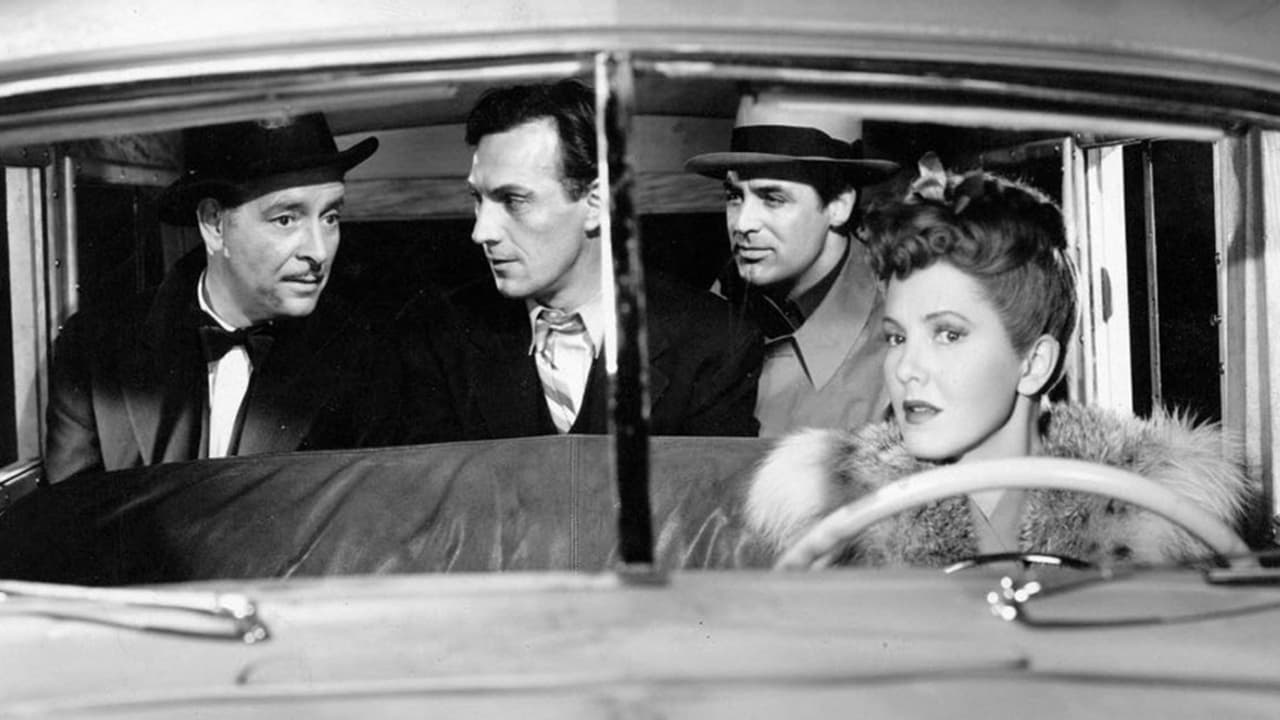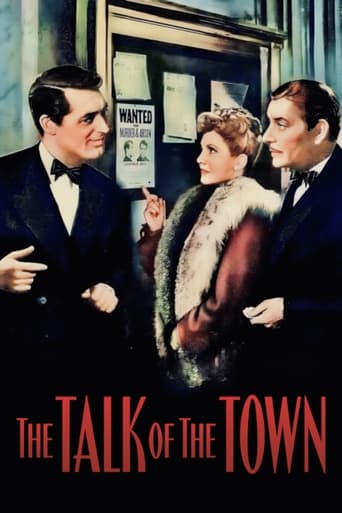

not great but nice. not special but seductive for a smart story, use of humor and romanticism, fake tension and Cary Grant. interesting for Rex Ingram and for the nuances of role exploited by Ronald Colman. a film with large ambitions who remains only another comedy about heroes and love. nothing new but amusing for the small scenes who seems be ambiguous or for the classic end, for the unrealistic events and for the good intentions. nothing memorable but useful for remind the flavor of lost period. that is all. a film with ordinary mistakes and drops of glamor. is it enough ? yes, in this case. because not the artistic virtue is the most important thing but the smell of a fragment from a golden age.
... View MoreGeorge Stevens directed this comedy/drama starring Jean Arthur as Nora Shelley, who owns a boarding house in New England where she is staying, along with noted Harvard Law School professor Michael LightCap(played by Ronald Colman) who is working on a book. Joining them is Leopold Dilg(played by Cary Grant) who is said to be the gardener, but in reality is an escaped prisoner accused of arson and murder regarding a reputedly unsafe factory. Leopold claims his innocence, and when the professor gets wind of this, resolves to help him prove it by conducting his own investigation... Thoughtful and smart film with a good cast and involving story, with a most subdued performance from Grant(which makes for a welcome change!) Well worth seeking out.
... View MoreLike some of the other participants on this board, I too, am surprised that this isn't more revered, or for that matter, remembered. I have not seen it on any top 100 list on AFI or elsewhere.Not to sound like somebody with a schoolboy crush, but could you find another actress who is more charming than Jean Arthur. She is definitely one of the best actresses of the 30s and 40s. Don't get me wrong, there are other superb actresses like Bette Davis and Katharine Hepburn of those years, but there is something about Jean Arthur that I can't resist. Maybe it's that voice? The memorable thing about this film is that you are a little thrown by the opening scene and what follows after. Grant, I can reveal, is wanted for murder and hides out with school chum, Arthur. Matters are complicated by tenant, Colman. At first, you think this is going to be a bedroom farce but it suddenly shifts tone to highbrow drama. Also, I was a little thrown by Grant's sudden appearance in front of Colman after hiding out in the attic. Colman doesn't look that surprised either.Like I said the film shits tone many times. At first, you think it's going to be a gritty crime drama, then it shifts to the aforementioned bedroom escapades and then just as suddenly, we are in the middle of philosophical discussion about law. But that's okay. I rather enjoyed the chemistry between Colman and Grant in those scenes.What is far less acceptable, is the tired convention of which man will the woman end up with. It is not only a cliché, but it is more than a bit awkwardly played out here. Still, you can't have Arthur dump them both, so I think that the filmmakers made the right decision of making it the more popular of the two, at that time at least.If you are confused by this commentary, don't worry. Wait 'till the next one.
... View MoreGrant is a political activist, Leopold Dilg, who is framed for arson and for the death of a man supposedly burned to death. He hides out in the farmhouse of a friend, Jean Arthur, but Arthur has rented the house for the summer to stern judge Ronald Colman, who wants peace and quiet so he can write his book. He's also hoping for an appointment to the Supreme Court of the United States.Arthur introduces Grant as the gardener. Coleman soon finds that Grant is a most peculiar gardener. He cultivates some pretty unorthodox views of the law, promoting its spirit, whatever its letter. Also he's able to beat Coleman at chess.Coleman finally discovers Grant's real identity and is determined to turn him in but before he can do so, Grant knocks him out and escapes. Coming to, Coleman thinks things over and realizes there is no real evidence against Grant except an oddly self-absorbed hair dresser who was the girl friend of the supposedly barbecued victim. Coleman pursues his own investigation. Things get hectic before they end happily.Jean Arthur winds up in the arms of Cary Grant, while Coleman dons his black robe and sits behind his massive bench, entirely satisfied with the way things turned out. I'd have given Jean Arthur to Ronald Coleman, who seems more devoted to her than Grant is. It would be better for everyone concerned. Coleman is older and Arthur would provide him with contentment for the rest of his life, after which she'd become terribly rich. Grant, on the other hand, is a wisecracking malcontent whose middle name is Trouble. On top of that, he's named Leopold Dilg. That means she would have to become Mrs. Dilg. And on top of THAT, Cary Grant always gets the girl. Let's give her to Coleman this time. She'd make a nice addition to his library.I didn't find it as satisfying as some other viewers. The blend of romance, comedy, and drama was a little uneasy. Grant had a tendency at this point in his career of branching out into serious roles, often in message movies, in which he challenged his usual handsomely carefree film persona. "Penny Serenade," for instance. They were generally failures and Grant went back to doing what he did best by the late 40s.Never again would he be a character named Leopold Dilg or Ernie Mott or something.Good.
... View More